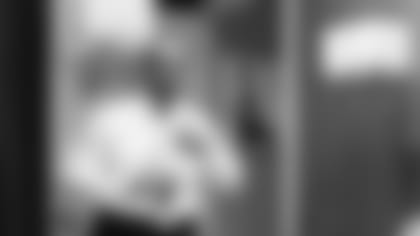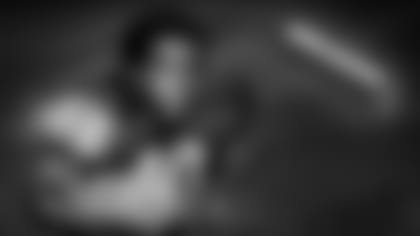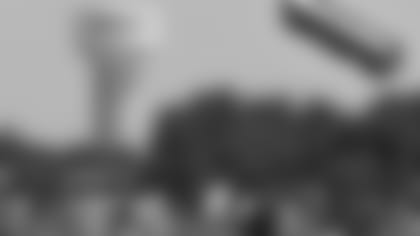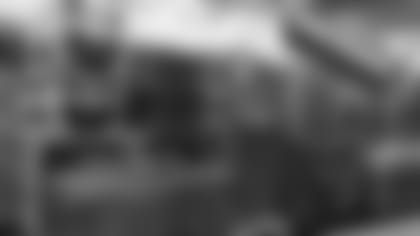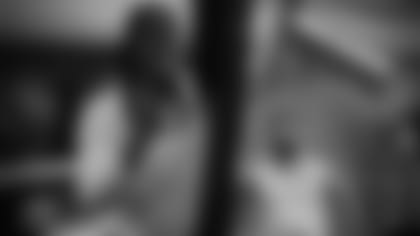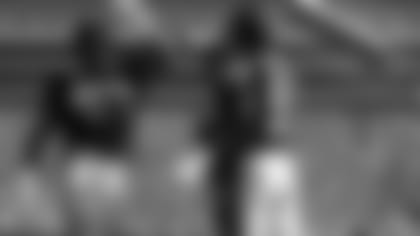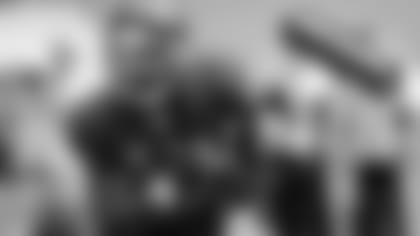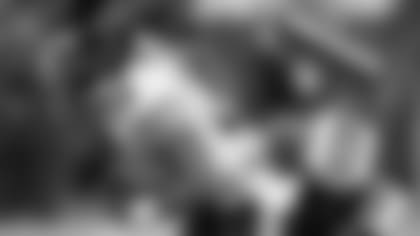Six days after the greatest player in franchise history passed away, the Chicago Bears paid a visit to their oldest rivals.
The Bears entered historic Lambeau Field on the sunny afternoon of November 7, 1999, with heavy hearts and a lot on their minds. Chicago was looking to give its community solace at the end of a week overshadowed by the death of 46-year old Walter Payton, who died on November 1 from bile duct cancer. The team wanted to end a three-game losing streak, which had dropped their record to 3-5 entering the Week 9 contest. And, after 10 straight defeats to the Green Bay Packers - the longest stretch of one-sided dominance in the rivalry's history - the Bears were aiming to finally beat their nemesis, Brett Favre. To do so at Lambeau would be no small task: Since the start of the 1994 season, Favre and the Packers had gone 40-4 on their home field.
The story of that week, and that game, is a complex one. The players, coaches, broadcasters, front-office personnel and onlookers who were there are best equipped to tell it. With the Bears heading to Green Bay this week, on the 15th anniversary of Payton's passing and the remarkable 1999 game, ChicagoBears.com tracked down its key participants to present the oral history of one of the most memorable matchups in the 93-year history of the Bears-Packers series.
Chapter I
"Only time I've ever seen a memorial service turn into a pep rally."
Payton passed away the Monday before the game against Green Bay, changing the entire Chicago organization's plans for the week. Along with their usual game-week practice and preparation, members of the team attended services and tributes, as well as a public memorial at Soldier Field for the Hall of Fame running back on Saturday.
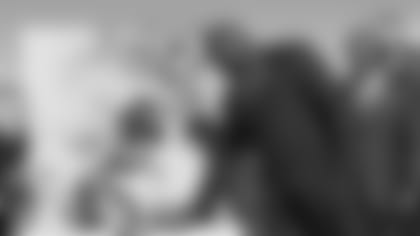
|
|
Bryan Robinson and his Bears teammates paid tribute to Walter Payton at Soldier Field on Saturday, November 6, 1999. |
Dick Jauron (Bears head coach, 1999-2003): There was nothing normal about that week for the Chicago Bears, or their fans, or the entire Bears family. Walter's passing was significant. There was a lot of conversation about what he meant to the Chicago Bears, what he represented as a football player, as an athlete, as a person.
Jim Miller (Bears quarterback, 1998-2002): It was pretty gloomy. People were down, emotions were down. I think everybody understood the impact on the NFL, not only the franchise of the Chicago Bears. But also the opportunity to talk about what Walter Payton represented, which was excellence within the Bears organization and all he had accomplished, being a good teammate and all those types of things. And that pretty much culminated through the week.
Glyn Milburn (Bears running back, 1998-2001): I just remember the very somber feeling around Halas Hall that week. After we'd found out the news, everything on television, 24-hour highlights playing of Walter Payton. Televisions, when we turned it on around the locker room, people were in shock and disbelief.
Tony Medlin (Bears equipment manager, 1987-Present): That was probably the darkest cloud I've ever experienced here with the Chicago Bears. It was like, just a cloud that was hanging over the Bears because Walter was one of the greatest guys in the history of the sport. And at such a young age, he passes away. So it's kind of like, 'Why?'
Bryan Robinson (Bears defensive lineman, 1998-2003): (The whole week) was a little bit different. We had a ceremony on Saturday before we took off for Green Bay. So we are all mourning the loss of Walter Payton. I'd just got to Chicago the year before, but I realized how meaningful Walter was to the Chicago Bears. I hadn't realized what type of person and what type of stature he'd had, because I'd just gotten to the Bears. I didn't realize the legacy of Walter Payton, but I did quickly.
Tony Parrish (Bears safety, 1998-2001): We knew we hadn't beaten the Packers for a while, even before Walter passed. So this just added to it.
George McCaskey (Bears ticket director, 1991-2010; Chairman, 2011-Present): What I remember most is the service at Soldier Field, because it was the only time I've ever seen a memorial service turn into a pep rally. The whole team was there, and then we had to get on buses to go to Green Bay for the game. And so they held the crowd back as the team was filing out, and as we were walking to the buses, the crowd was chanting 'Let's Go Bears!'
Jarrett Payton (Son of Walter Payton): One of those things where I'm not sure how to even explain it. My dad being from Mississippi and him coming to Chicago, Chicago became his home. For everything to happen and have the memorial service there, at Soldier Field, it was very fitting to have it happen there, to be able to share with all the fans. My dad always called Chicago Bears fans 'family.' It was so surreal to be able to share that moment with not only the Bears family, but also the current Chicago Bears at that time.
Parrish: Going through something like that as a team, as a city, as a family, there's a lot of emotions that are difficult to explain. But it's something that will have an impact on your team. We definitely wanted to get a win badly not just because of the rivalry, but because we felt our extended Bears family could benefit.
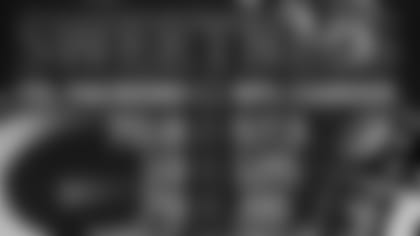
Walter Payton faced the Packers 24 times in his Hall of Fame career, and the running back tended to elevate his game when facing Chicago's oldest rival.
Chapter II
"We were moving the ball up and down the field, we just couldn't cash in."
The Bears, 9.5-point underdogs to the 4-3 Packers, faced a big setback early in the game at Lambeau Field. Starting quarterback Cade McNown sprained his right knee in the first quarter, forcing backup Jim Miller into action. The new QB, and a shaky placekicker who had been signed only weeks before, made scoring a struggle for the Chicago offense.
Miller: I just remember walking out the Lambeau Field tunnel and saying, 'I'm going to play today. Be ready.'
Milburn: Few had the personality Jim Miller had as a backup quarterback. He was someone that was a natural leader, he commanded the huddle. So, when he came in, it was really a new season for the team. There was a calm in the huddle. He demanded it and he played well.
Jauron: The players were very focused. They were embracing, if you will, this great legacy of Walter Payton. They were aware of it. We always made them aware of the great historical importance in sports of this rivalry anyways. They wanted to win.
Robinson: I remember showing up late for warm-ups that day. So I got in a lot of hot water with Coach Jauron. And in the middle of the game, I think I had a personal foul on Brett Favre. So it wasn't really looking good for me, you know.
See the story of the "Walter Payton game" - a Bears 14-13 victory over the Packers at Lambeau Field on November 7, 1999.
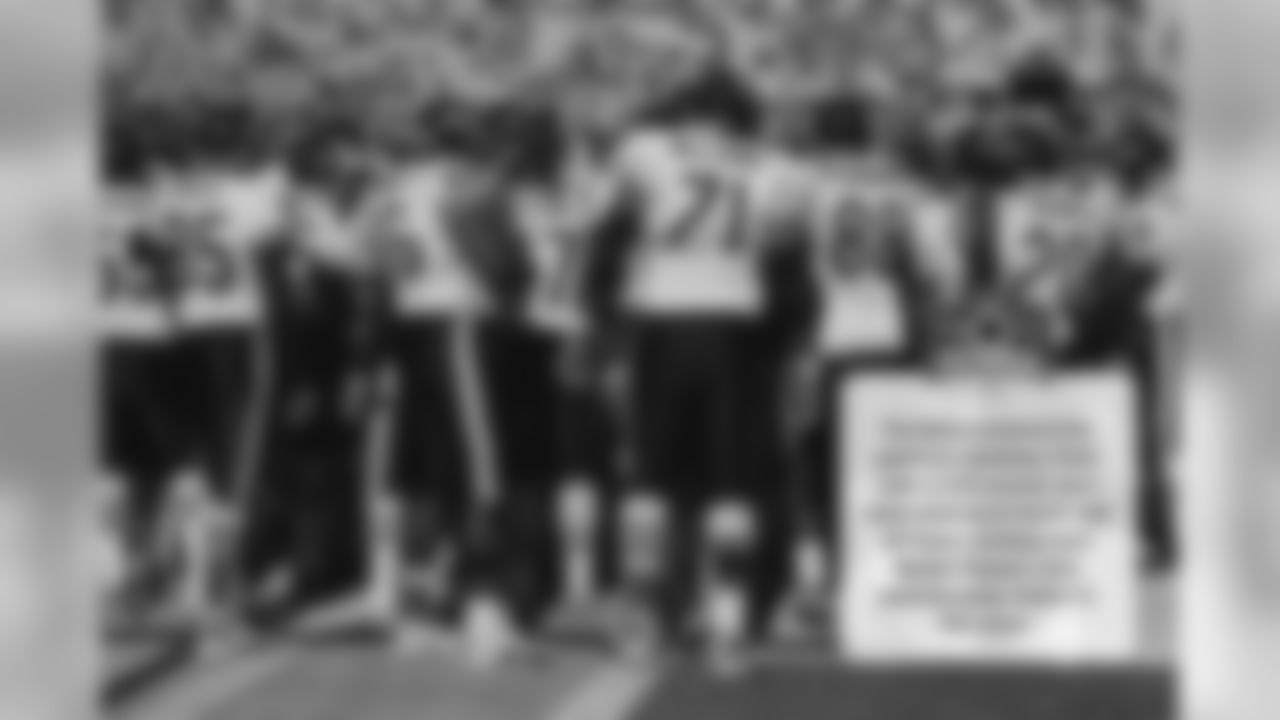
The Bears entered the game at Lambeau Field with a 3-5 record, and were looking to honor Hall of Fame running back Walter Payton, who passed away earlier in the week.
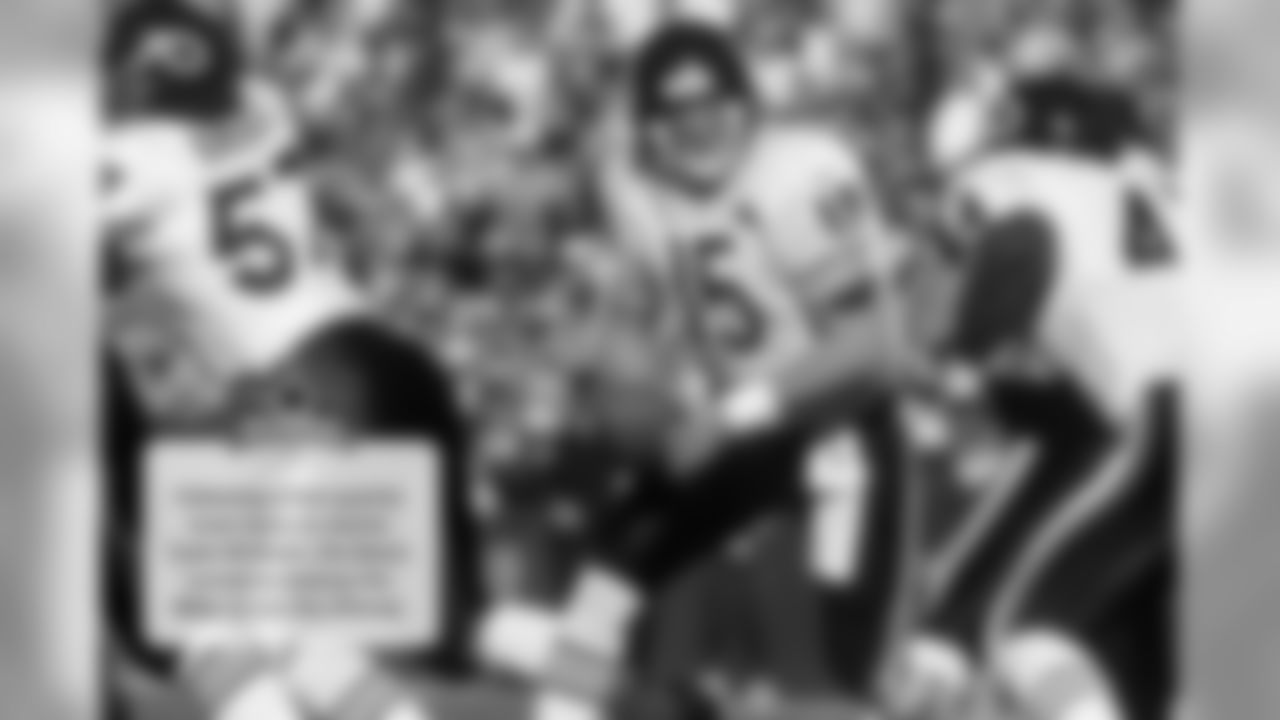
Following a first quarter knee injury to starter Cade McNown, the Bears turned to backup Jim Miller to run the offense.
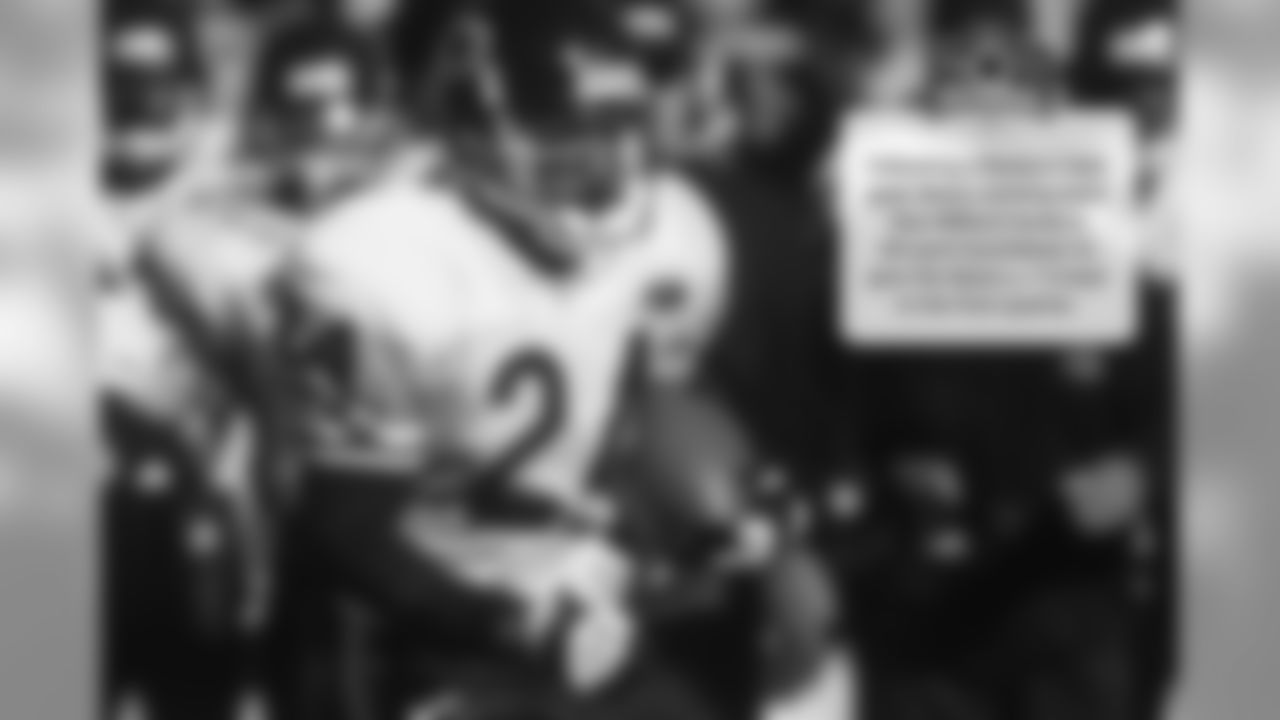
Following a Packers field goal, Bears running back Glyn Milburn broke a 49-yard touchdown to give the Bears a 7-3 lead in the first quarter.
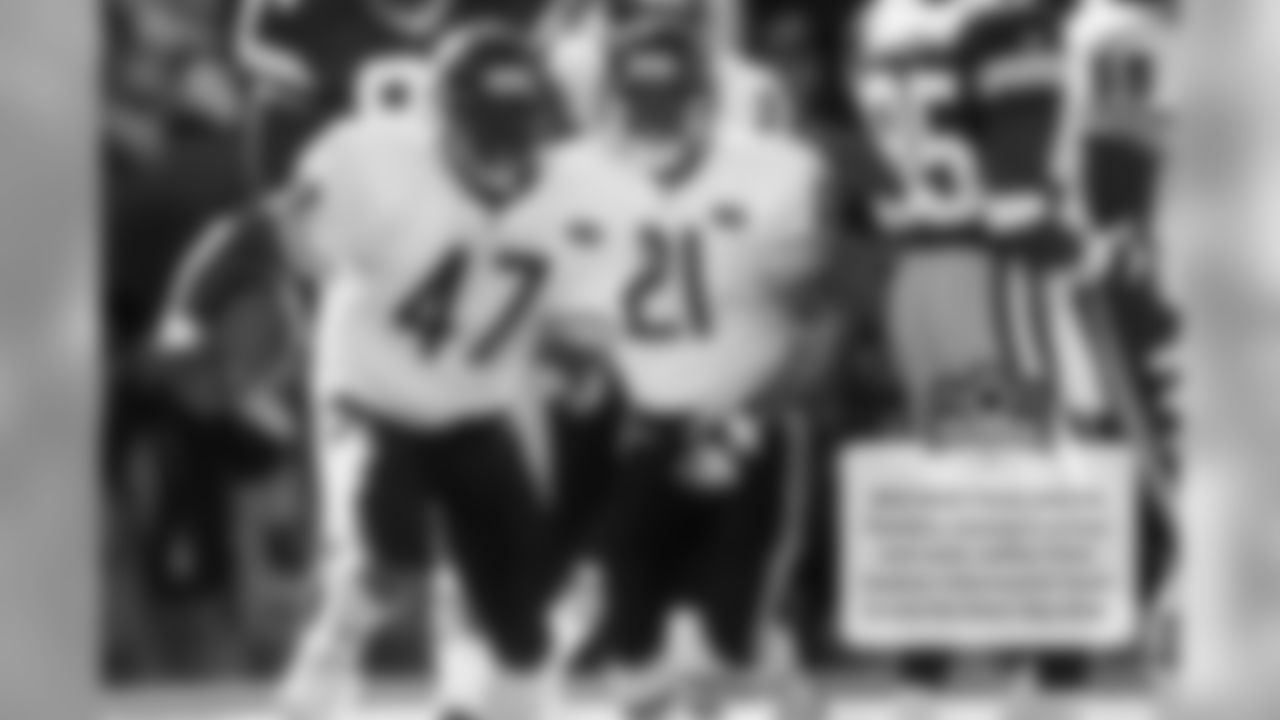
With Brett Favre and the Packers closing in on the end zone, safety Chris Hudson intercepted Favre to end the Green Bay drive.
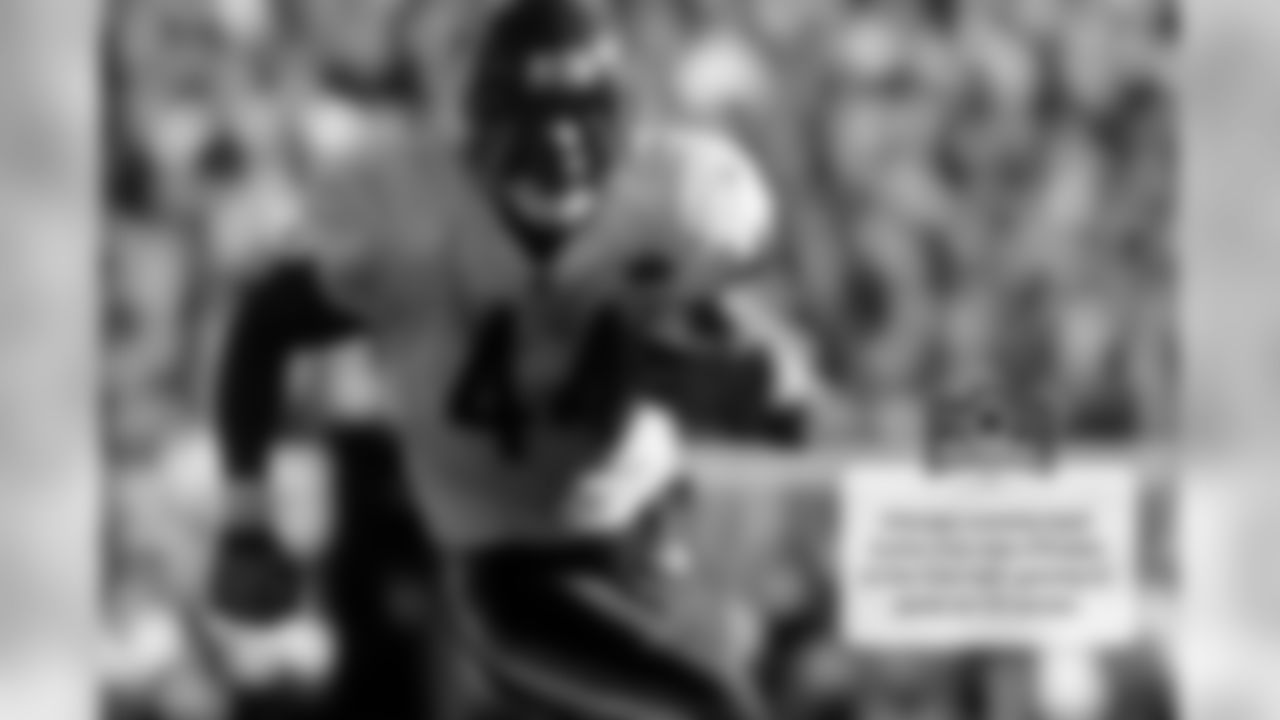
Chicago running back Curtis Enis was efficient in the first half, gaining 51 yards on 10 carries.
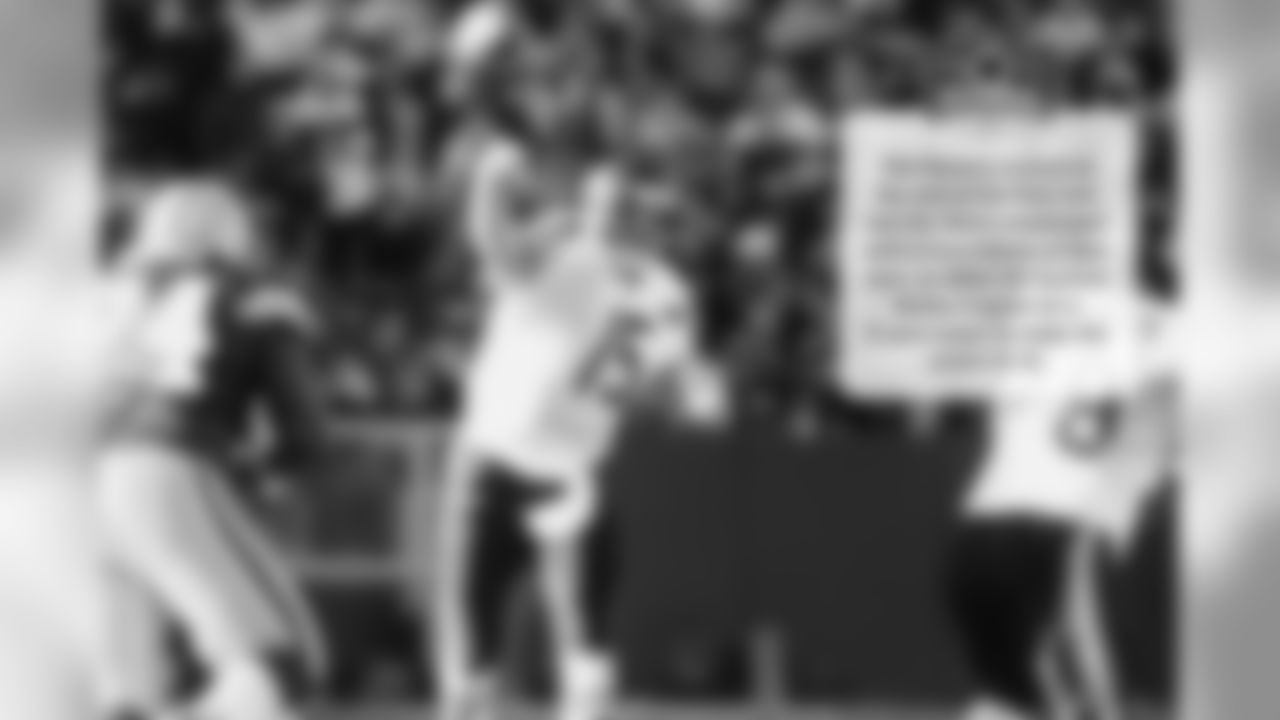
The Packers scored at the end of the first half, but the Bears responded with a touchdown of their own, as Miller hit receiver Bobby Engram on a 6-yard score to make the score 14-10.
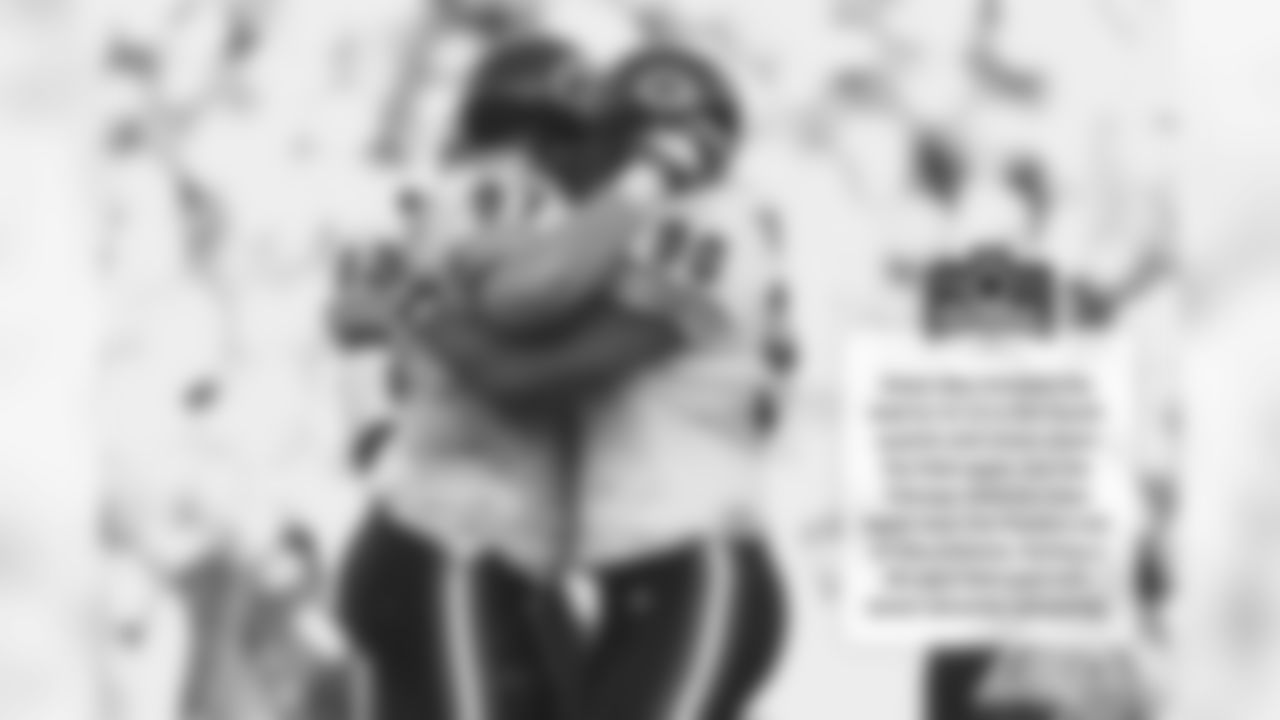
Green Bay trimmed the lead to 14-13 in the fourth quarter and drove down the field again, but the Chicago defense once again kept the Packers out of the endzone, forcing a 28-yard field goal with seven seconds remaining.
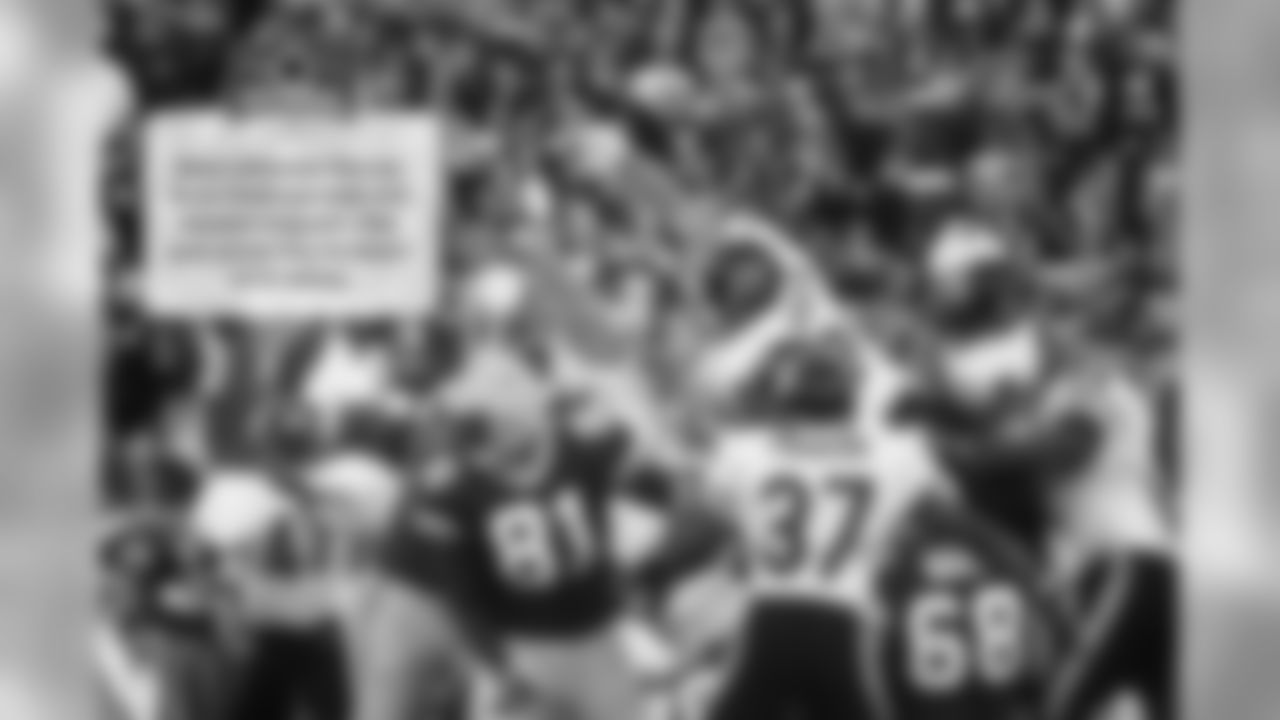
Bears defensive lineman Bryan Robinson leapt and blocked Longwell's field goal, preserving the Bears' 14-13 victory.
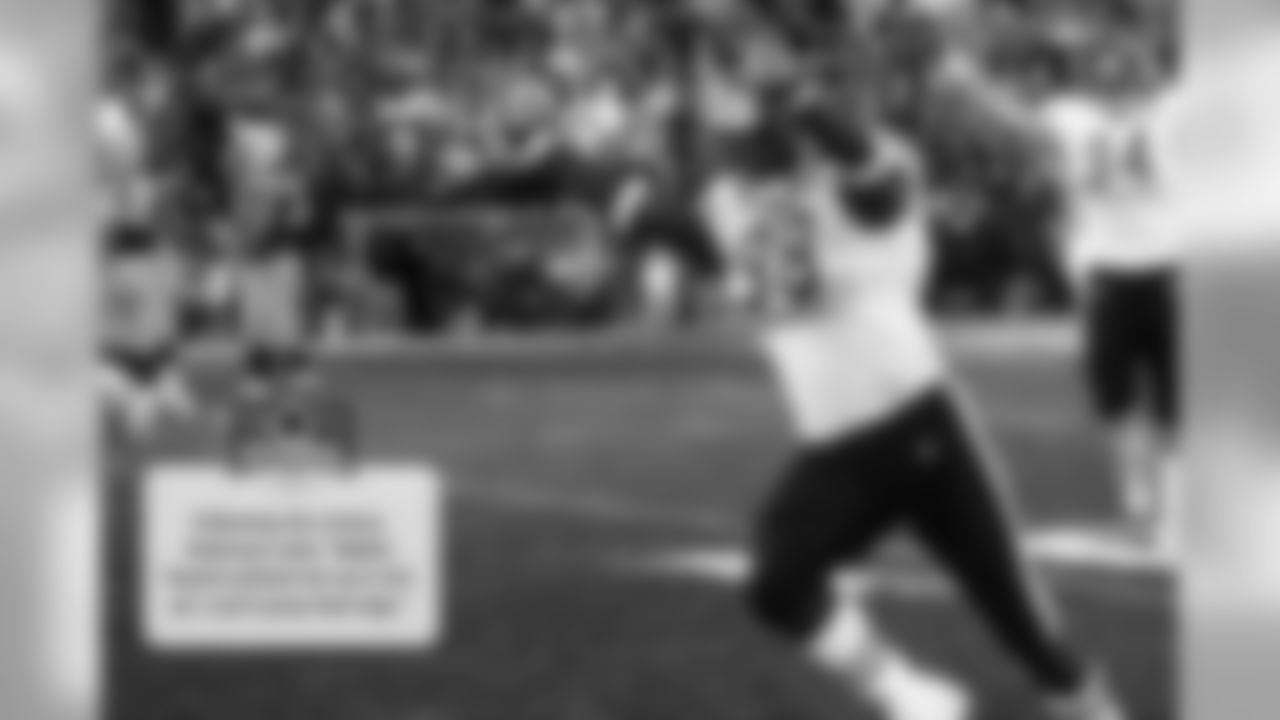
Following the victory, Robinson said, 'Walter Payton picked me up in the air. I can't jump that high."

The victory over the Packers ended a 10-game losing streak for the Bears in the series, as it was the team's first win against Green Bay since Dec. 5, 1993.
Wayne Larrivee (Radio play-by-play voice of the Bears, 1985-1998; Play-by-play voice of the Packers, 1999-Present): It wasn't the same 'Bears-Packers, let's get after each other' type of game. Not so much on the field, but in the stands. There was more of like a respect, 'we can feel your loss,' that type of thing.
McCaskey: All Bears-Packers games are played with great intensity. It's the longest rivalry in the NFL and in my opinion it's the best rivalry in sports. And even when one team is doing very well and the other team is struggling, the games seem to be very competitive. Whether it's in Chicago or it's at Lambeau, you know it's going to be a slugfest.
Milburn: We started by running three or four consecutive plays. I think I ran one, Curtis Enis ran one, I think James Allen ran one. So we had a number of different looks. Me, I just happened to break through the line and kind of got into open spaces and take it the distance. (Milburn scored the game's first touchdown on a 49-yard run in the first quarter.) So it was good to do that against your biggest rival and especially for me, having been traded by the Packers the year prior.
Parrish: We had confidence in our guys. We had confidence that defensively, if we kept having the offense's back, if we handled things on our side of the ball, that we'd have a chance.
Chris Boniol (Bears placekicker, 1999): I just got there; they had had a kicker who'd been injured. So it was quite a unique experience.
Miller: We should have scored on about four other drives that we'd stalled on. We were moving the ball up and down the field, we just couldn't cash in.
The Bears' backup quarterback threw one touchdown in the game, as well as three interceptions. That gave Favre and the Packers a chance to capitalize. Chicago held a 14-10 lead going into the fourth quarter and had a chance to extend it, but Boniol's 34-yard field goal with less than 11 minutes remaining went wide left. Back and forth the teams went, with the game destined to come down to the final possession.
Boniol: As a player, when you don't do your job, you're disappointed with yourself.
Antonio Freeman (Packers wide receiver, 1995-2001): We felt we always had a chance. If we just needed to drive down, get into field goal range, that was our comfort zone. We knew our quarterback knew the offense, he was comfortable running it.
Chapter III
"There was some magical element in the way that we played."
Down 14-13 with 3:19 remaining in the fourth quarter, Favre marched the Packers offense down the field, as he'd done so many times before. Green Bay gained 64 yards on 12 plays, setting up a 28-yard field goal with seven seconds to go.
Ryan Longwell (Packers placekicker, 1997-2005): It was a crystal clear, blue sky day in Green Bay. I remember it was kind of a low-scoring, dogfight type of game.
Robinson: We were sitting there - myself, (fellow defensive linemen) Shane Burton, Clyde Simmons, Jim Flanigan, Mike Wells - arguing in the huddle about how we were going to push and block this kick. I think Clyde Simmons just said, 'Just rush and put your [expletive] hands up.'
Miller: I felt we were going to block it or he was going to miss it. I really felt that way.
Parrish: It was a really strange play. It was one of those moments where — it was sort of an out of body moment at the time. I remember lining up with so much swirling that week, and everything we had left had to go into that particular play.
Robinson: The only thing I could think of was, 'I need to make a play.' I didn't know that my hand was going to be the one that tipped the kick.
Milburn: I knew that we had extra motivation and extra focus. And blocked field goals are rare in the National Football League. And I believe that Bryan had that extra motivation. He said that Walter Payton was on his shoulders that day, and that play, and I think for all of us, we felt there was some magical element in the way that we played and the way that we finished that game.
Jauron: When you talk about the block and the game in general, we played good enough to keep it close, to give us a chance to win. And we had the lead and then blocked the field goal. In our minds, we did what we had to do to win the football game, and under emotional circumstances.
Payton: Watching the Bears always made me feel better, whether they were winning or losing. I'm a big believer in faith. I believe that my dad was there. He was there in spirit and as the game unfolded, seeing what the game meant to them and how much they were taken back with all that had happened. It was special. It was truly special.
Longwell: It almost felt like you never had a chance to begin with, if that makes sense. The whole aura of that week and that game and that day, and just the way that the game played out. The sky being so clear and the Bears honoring one of if not their greatest player, they block the game-winner to seal the win. So it was kind of like one of those games where you just felt like there was a higher power involved in the outcome and there was nothing we could do to stop it.
Parrish: I believed that we'd win. All streaks come to an end, and why not that Sunday? Why not Green Bay? Why not the week after Walter's passing?
McCaskey: All victories are satisfying. Victories over the Packers are especially satisfying. And that particular victory over the Packers was extraordinarily satisfying. Just because of Walter and all the great games he had against the Packers and what an outstanding competitor he was on the field and what a great guy he was off the field. It was just perfect ending to a very sad week.
Medlin: Everybody said 'That was Walter.' He blocked that field goal so we could win the game.
Robinson: I just remember man, getting my hands up and trying to jump as high as I could. And I didn't know. I didn't know what was going to happen. And I blocked the kick. And it's just like, you're the hero. And that was awesome. But it was all for Walter.
Payton: That's the great thing about sports. You never know who is watching, who is at home going through bad times. At those times, people turn to sports, to help them cope with what's going on in their lives. That's why people are so entrenched in the Bears, so entrenched in sports. I don't think anyone on the Bears had any clue what that game meant to my family and me. And how it was really something that was helping us to get through what we were going through.
Chapter IV
"He played hard all the time, he never quit and he was tough."

Bryan Robinson (No. 98) did not start his day well, but he finished it with one of the most-memorable plays in Bears history.
Fifteen years after Robinson's block sealed the 14-13 Bears win and ended the losing streak to Green Bay, the game's key participants still fondly remember the action from that afternoon. They also remember the legacy of Payton, the man known as Sweetness who was a giant on the field and cast an even larger shadow off of it.
Larrivee: I always had the impression that Walter Payton led his team by example, by sheer will. And I think when they got the right players around him, that will he played with to succeed on every play carried over to all those great players (the Bears) had in the '80s and early '90s. And that's what I think is his greatest enduring legacy, is that he was the guy who got whatever there was. He got it all out of every single play. And that's what made him great.
Miller: Well, he impacted me personally, and I didn't even know the man. I was a young kid in Detroit, Michigan, buying Kangaroo shoes just to be like Walter Payton. So, I knew what he represented, which was greatness. How tough he was, how physical of a football player he was, how tremendously talented. All the memories he brought me as a kid growing up that kind of formed my opinion of what kind of football I wanted to be.
Payton: It's a testament to who my dad was as a person. I think that's why he played the game the way he did. He played the game because he wanted to be remembered, both by his peers and for the generations that came after him.
McCaskey: In my opinion, the greatest player in NFL history had some of his greatest games against our greatest rival. And I think if Walter were looking down on that game, November 7, 1999, he would have been very proud of his Bears.
Jauron: Bryan Robinson was a tough guy. Bryan represented kind of what Walter represented. He played hard all the time, he never quit and he was tough.
Robinson: I was an undrafted guy, so I wanted to come in and play hard and wanted everybody to like what I did for the organization and you know. And that to me exudes Walter Payton. Being from the school he came from, overcoming a lot of things and just being Sweetness.
Milburn: The game itself is a blur, quite frankly. I don't remember many of the plays. I don't actually remember the run that I made. I don't think about it often, honestly. I do remember the blocked field goal. I remember running on the field at the end of the game and saying 'Unbelievable.' We had '34' patches on our jerseys and this would be one of those games I would remember only for the final score and the way that it ended. And thinking of the context of which we lost the great player and great Chicago icon Walter Payton that previous week that we would be remembered because we were able to do something that most oddsmakers, most prognosticators didn't believe we could do. But beating the Green Bay Packers on their home field in the stretch run that they had over that couple of years that they were virtually unbeatable. So for that matter, Walter Payton was a classic example of that throughout his career. He didn't play on many very good Chicago Bear teams, but he was the team. He was the player who excelled. And he was the player who finished games as well as he started them. For that matter, the way that that game played out was typical of a Walter Payton-type effort. He finished to the end, and because we did the very thing that he embodied as a player, we were able to come out on top.
Eli Kaberon is a seasonal staff writer for ChicagoBears.com. He has previously written for Pro Football Weekly, Stats LLC and the Chicago Sun-Times. In 2014, Kaberon won the Chicago Headline Club's Peter Lisagor Award for Best Sports Story in a Daily Newspaper. You can follow Eli on Twitter @EKaberon.



